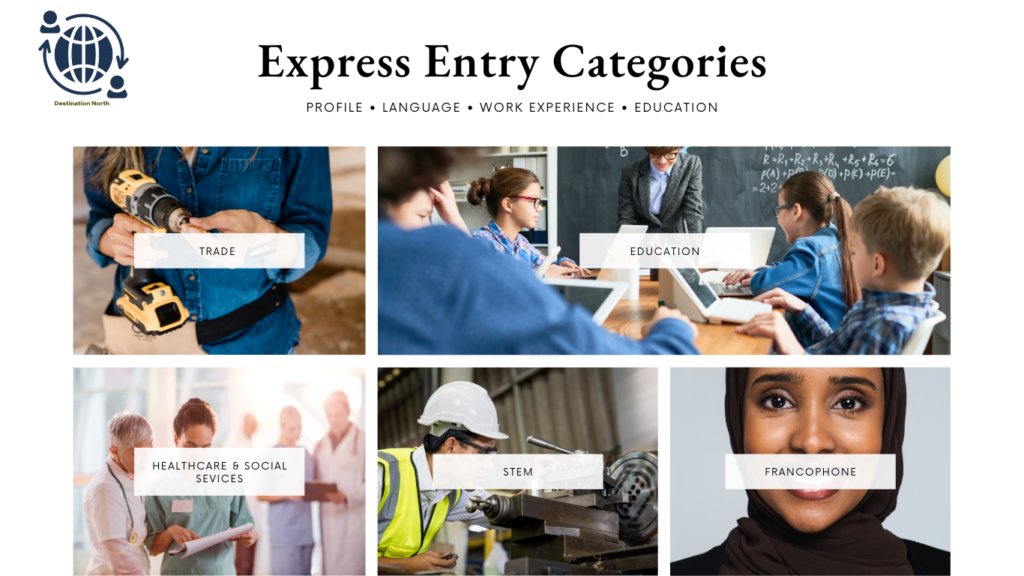Canada's New Express Entry Changes: A Strategic Shift Towards Canada's Labour Market Aligned Need

The Strategic Approach by IRCC
By targeting specific skill sets and professions that are in high demand, the ministry aims to ensure that new immigrants can contribute meaningfully to sectors vital for Canada’s continued economic success. This move not only addresses the frustration of overqualified newcomers struggling to find suitable employment but also supports businesses by providing access to the skilled talent needed to thrive.
The positive aspects
-
This decision prioritization of sectors like healthcare, construction, and education not only fills immediate gaps but also supports Canada’s long-term economic growth. It’s a strategic move that prevents revenue loss for businesses due to talent shortages while enabling immigrants to integrate more smoothly into the workforce. E.g., it’s a move toward addressing the chronic shortage of long-term and senior care professionals.
-
Continued emphasis on cultural diversity outside of Quebec: The emphasis on selecting Francophone candidates outside of Quebec contributes to Canada’s cultural diversity. It encourages settlement throughout the country, setting roots, creating multi-ethnic communities, and promoting a balanced demographic growth that enriches both Francophone and Anglophone communities.
-
Prioritizing Canadian Work Experience: Giving preference to candidates with Canadian work experience facilitates smoother transitions to permanent residency. It acknowledges the value of immigrants who have already adapted to Canadian society and gained valuable professional experience, ensuring they can contribute permanently.
However, despite these positive changes, there are legitimate concerns that need addressing
However, despite these positive changes, there are legitimate concerns that need addressing:
-
While healthcare, trades, and education are undoubtedly crucial, focusing solely on these sectors could unintentionally overlook skilled immigrants in other industries experiencing shortages, such as technology or advanced manufacturing. To avoid missing out on these essential talents, a more balanced approach is needed. Specifically, there should be a dedicated category for highly skilled tech workers and international students who have completed their education in Canada while simultaneously gaining work experience. These individuals are in their prime, well-integrated into Canadian culture, and ready to contribute to the country’s future growth, innovation, and research. They are truly labour market-ready and represent a valuable asset to Canada’s evolving economy.
-
While promoting strong French language skills is admirable, it could inadvertently disadvantage skilled workers from non-Francophone backgrounds, especially in regions where French proficiency is less prevalent. This is evident from the frequency of draws in Express Entry, which highlights the focus on French language skills. In light of the ongoing geopolitical turmoil, now more than ever, Canada needs individuals who bring stability and the ability to navigate such disruptions. A stronger emphasis on meritocracy is crucial. Otherwise, we risk underrepresenting skilled immigrants who are vital to provinces outside of Quebec.
-
There is a noticeable gap in the current immigration pathways for self-employed individuals and business immigrants despite the significant potential they hold. These individuals, often entrepreneurs or skilled professionals with years of experience, rarely find suitable pathways to immigrate as entrepreneurs. The lack of accessible pathways overlooks the fact that vetted, experienced immigrants can inject valuable capital into the economy, create jobs, and foster innovation.
Self-employed individuals and business immigrants bring more than just financial investment—they contribute a wealth of knowledge, global business connections, and a keen understanding of market demands. These traits can help stimulate local economies, especially in regions that are underdeveloped or facing economic challenges. Furthermore, their businesses can provide stable, long-term employment opportunities for Canadian workers, helping to diversify and strengthen various industries.
Takeaway
The newly introduced categories are good for addressing labour shortages and strengthening the economy, but it’s essential to mitigate potential drawbacks such as sectoral limitations and underrepresentation of non-Francophone immigrants. A balanced immigration strategy that considers diverse contributions and societal values will ensure Canada’s continued success as a welcoming and prosperous nation.




One Comment
* * * Claim Free iPhone 16: http://namebing.in/index.php?lxw1cl * * * hs=5d8bf2f72a62f6d1609f7f06c54485c5* ххх*
4npozf